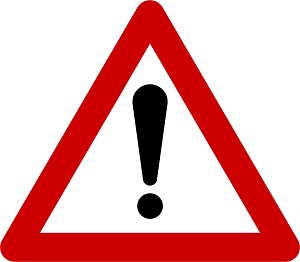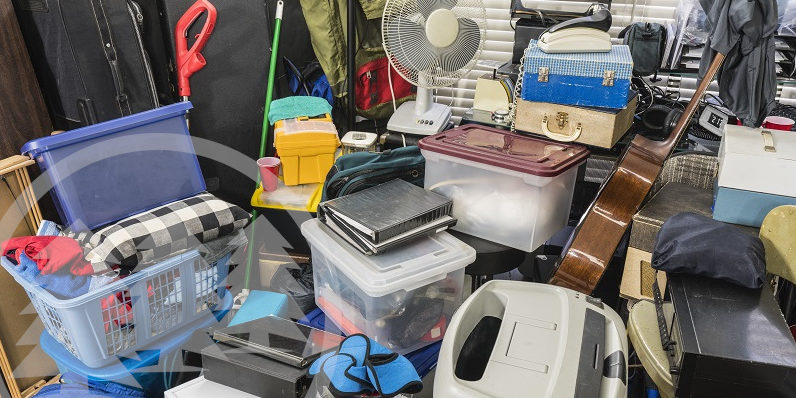When running a homeowners association (HOA), you’re bound to encounter people with different backgrounds, life stories, and conditions. It’s these things that add color and personality to your community. Other times, you might have to deal with issues like hoarding which can be problematic for your community. Since hoarding is a delicate matter, it should be handled appropriately and discretely. Here’s how to fight hoarding in your HOA.
What Does Hoarding in Your HOA Look Like?
Hoarding is characterized by a person’s inability to discard his/her possessions within their living space. Hoarders may collect newspapers, magazines, food, clothing, cardboard boxes, and even animals. Because they cannot get rid of these possessions, the items begin to pile up and take over their space.
What Are the Risks of Hoarding in Your HOA?
 Compulsive hoarding is a serious problem that comes with physical, emotional, social, financial, and legal repercussions. It’s not just hoarders who are affected. This condition also affects their families and friends as well as the people who live near them.
Compulsive hoarding is a serious problem that comes with physical, emotional, social, financial, and legal repercussions. It’s not just hoarders who are affected. This condition also affects their families and friends as well as the people who live near them.
Hoarding can pose safety and health risks to your community. Magazines, newspapers, cardboard boxes are made of paper, which is a combustible material. Piles or stacks of these items can pose a serious fire hazard. If a hoarding homeowner suddenly has faulty wiring, the entire house could burst into flames — and even spread to neighbors’ houses.
Hoarded items, such as decaying food, trash, and dirty clothes, could also lead to foul odor, mold growth, and pest infestations. These issues can easily spread through the walls and vents, thus affecting other units or houses.
When hoarding becomes out of control, a homeowner’s collection may even become visible from the outside. It may extend past their garage, patio, or deck. Thus, hoarding can also affect the property values in your community.
Is Hoarding Against the Law?
Hoarding is now a recognized mental disorder or disability. Hoarders are protected under the Fair Housing Act (FHA) and the American Disabilities Act (ADA) as well as several local and state housing laws. Associations cannot deny or evict homeowners because they are hoarders. Homeowners who have hoarding disorders are also eligible to receive reasonable accommodations on the basis of their disability.
While there are no laws against hoarding, there are proper and legal measures that can help your HOA deal with problematic hoarding behaviors. Because this is a delicate issue, it’s important for the HOA to tread carefully to protect the well-being of the entire community.
How to Handle Hoarding in Your HOA
As much as HOAs want to accommodate a hoarding homeowner, the board also wants to ensure that the entire community is not adversely affected by his/her behaviors. The association may also find itself liable if these hoarding behaviors become out of control. Thus, it’s important to know how to handle a hoarder in a way that’s legal but also compassionate.
Here are steps you can follow to prevent hoarding problems in your community.
1. Look at Your Governing Documents
 First and foremost, make sure that you have safeguards in your community’s governing documents. While your bylaws cannot outright deny hoarders (as that would be illegal or discriminatory under the FHA), you can establish guidelines or provisions that will help protect your community.
First and foremost, make sure that you have safeguards in your community’s governing documents. While your bylaws cannot outright deny hoarders (as that would be illegal or discriminatory under the FHA), you can establish guidelines or provisions that will help protect your community.
You should have sections in your HOA’s governing documents that prohibit actions or behaviors that can endanger the well-being of other residents as well as community property. Having these safeguards in your covenants and bylaws can offer protection from potential legal action when dealing with hoarding in your HOA.
2. Identify Hoarding Homeowners
Homeowners are not aware that their compulsive hoarding is problematic. At the same time, the HOA board also cannot check up on everyone who is residing in the community. Neighbors are usually the ones who will notice problematic hoarding behaviors. Follow up their reports so that you will know who the hoarding homeowners are in your community.
3. Speak to Hoarding Homeowners
 The board can visit homeowners who have been reported for hoarding behaviors. Inform the homeowner that you are following up on neighbors’ reports. If there is no problem, a homeowner might welcome you into his/her home openly. This might just be a case of poor housekeeping. You can remind the homeowner of the HOA bylaws and any violations they might have incurred.
The board can visit homeowners who have been reported for hoarding behaviors. Inform the homeowner that you are following up on neighbors’ reports. If there is no problem, a homeowner might welcome you into his/her home openly. This might just be a case of poor housekeeping. You can remind the homeowner of the HOA bylaws and any violations they might have incurred.
If you are dealing with a hoarding homeowner, you cannot force them to provide you access to their property. Avoid confrontations with the homeowner. As a board member, you should always conduct yourself in a professional manner.
4. Send an Official Letter
If the personal visit did not lead to any changes, you can send the hoarding homeowner an official letter. Include details about the complaint, violations they have incurred, and supporting evidence such as photos or citations to back up the complaint. You can explain how these hoarding behaviors are affecting the safety and well-being of the community.
The letter should contain a deadline for clean-up efforts and possible sanctions if the homeowner does not comply. Under the FHA, homeowners with hoarding disorders are entitled to reasonable accommodations, and this may include mental health services and additional time to comply with the required clean-up efforts.
5. Take Advantage of Routine Inspections
If a hoarding homeowner has denied access to his/her property, you can use routine inspections to at least confirm if his/her hoarding requires urgent action from the HOA. Associations usually have routine property inspections for fire sprinkler systems, smoke alarms, insurance, and the like.
Take note, though, that you must have a valid reason for inspection, you cannot use it just as an excuse to enter a homeowner’s property and confirm hoarding in your HOA. You can also work with authorities who can check for local code or health compliance. The fire department also makes inspections from time to time to establish entryways for first responders and ensure safety from potential fire hazards.
When Should You Take Legal Action Against Hoarders in Your HOA?
 Your HOA can take legal action if a homeowner’s hoarding behavior is continually putting the health and safety of the community at risk — and no other reasonable accommodation can eliminate those risks. However, make sure that you have exhausted all other means to remedy the situation. If you pursue legal action, and the court finds that there are no health and safety issues, the HOA may be held liable for violating the FHA.
Your HOA can take legal action if a homeowner’s hoarding behavior is continually putting the health and safety of the community at risk — and no other reasonable accommodation can eliminate those risks. However, make sure that you have exhausted all other means to remedy the situation. If you pursue legal action, and the court finds that there are no health and safety issues, the HOA may be held liable for violating the FHA.
As an alternative, the HOA and the hoarding homeowner can decide to pursue non-binding arbitration to deal with the situation. The association can provide accommodations such as clean-up or maintenance services and providing storage space for the homeowners’ belongings. Given the delicate nature of a hoarding disorder, the HOA should work together with the hoarding homeowner’s family, social workers, and mental health professionals to provide the hoarding homeowner with the help he/she needs.
In cases like these, it’s also best for the board to consult an HOA management company as well as your HOA attorney. An HOA manager can help the board educate themselves on anti-discrimination laws, the FHA, and other related matters. HOA management will provide you with the legal assistance you need to effectively deal with complex homeowner situations such as hoarding.
Dealing with Hoarding in Your HOA
A homeowners’ association is responsible for maintaining a community, but it cannot dictate how a homeowner decides to live. When dealing with complex issues such as hoarding in your HOA, the board must tread carefully. The best approach is to have an open and honest dialogue with the hoarding homeowner.
The board should strive to provide reasonable accommodations for the hoarding homeowner and work towards improvement. At the same time, the HOA should also ensure the safety and well-being of the entire community. By following these steps and consulting HOA management, you’ll be able to handle these cases in a legal and proper way.
RELATED ARTICLES:
- 5 Tips For HOA Fire Safety In Your Neighborhood
- 5 Steps To Handle HOA Complaints In Your Community
- Dealing With Difficult Residents: Diffusing Anger In Your Community






